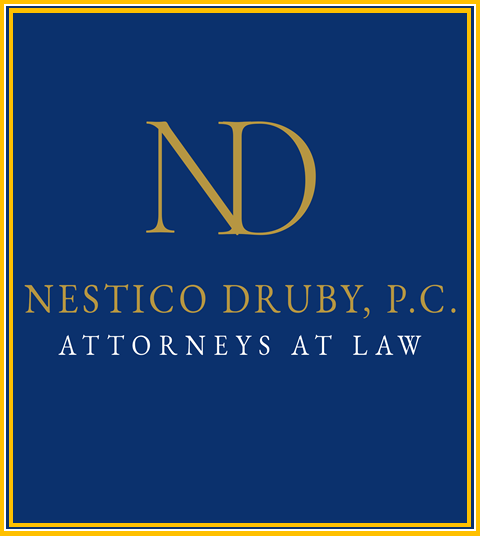Integrity.
Commitment.
Results.
COVID-19 NEWS
January 5, 2022
UPDATED: January 13, 2022
-
PROOF OF VACCINE STATUS AND VACCINE MANDATES:
-
Are these allowed?
Candis A. Tunilo, Esquire

Since the COVID-19 vaccines were first available to the public in December 2020, there has been controversy about whether Americans could be required to show proof of vaccination or be required by their government or employers to obtain the vaccine. Exactly how far could the government or employers go into our private lives and personal health decisions? The short answer is – farther than you may think. This article is intended to be useful to both employees and employers. It’s important to note, though, that these issues continue to evolve (almost daily) as matters make their ways through the courts and as the virus continually changes.
PROOF OF VACCINATION STATUS
Let’s start with the issue of employers requiring proof of vaccine status: Yes, this is permitted. According to the U.S. Department of Health and Human Services, employers may inquire into their employees’ vaccination status. An employer may not, however, require employees to submit their personal medical information as part of any proof of vaccination.
For employees – providing a copy of your vaccination card will do.
For employers – If you require your employees to provide proof of COVID-19 vaccination, you must retain such records in accordance with HIPAA, which includes keeping the records in confidential files separate from personnel files.
VACCINE MANDATES
On to vaccine mandates: Yes, the U.S. government can require you to get a vaccine (in certain circumstances), but where there’s a rule, there are also exceptions to the rule. And of course, there are those willing to challenge the rule in court.
Yes, your employer can require you to get a vaccine. Employers must invoke any such mandate just like all other rules at work – without treating employees differently based on disability, race, color, religion, sex (including pregnancy, sexual orientation, and gender identity), national origin, age, or genetic information.
EMPLOYERS WITH 100+ EMPLOYEES
According to OSHA’s COVID-19 Vaccination and Testing Emergency Temporary Standard (“OSHA ETS”), which was issued on November 5, 2021, and applies to all employers with more than 100 employees, all employees must be vaccinated against COVID-19 or be tested on a weekly basis and have a negative test before going to work and wear a protective face covering at work.[1] This may sound like a vaccine mandate, but it’s not. Per the OSHA ETS, it is up to employers to determine how to best to minimize the risk in the workplace – employers may require unvaccinated employees to wear a mask on the job and test weekly … or employers may require unvaccinated workers to work exclusively from home. Plus, employees that work exclusively outdoors are exempt. Employers, however, do have the option to require employees to be vaccinated.
-
UPDATE: On January 13, 2022, the U.S. Supreme Court reinstated the stay on implementation of the OSHA ETS pending a decision on the merits of challenges to the vaccination or test requirement. The U.S. Supreme Court stated that those challenging the OSHA ETS are likely to succeed on the merits because the U.S. Secretary of Labor lacked authority to impose such a mandate under federal law. As such, the OSHA ETS cannot be enforced at this time.
FEDERAL CONTRACTORS
By Executive Order 14042, President Biden imposed a COVID-19 vaccine mandate for contractors and subcontractors in all covered federal contracts in any state or territory of the United States, effective October 15, 2021.[2] Currently, pursuant to court order, the federal contractor mandate is not enforceable.
As such, the federal Office of Management and Budget (“OMB”) issued guidance to implementing the requirements in Executive Order 14042 while still complying with the court-ordered preliminary injunctions. The OMB’s guidance basically restates the applicability of federal agency COVID-19 workplace safety protocols for federal buildings and federally controlled facilities (in essence, the OSHA ETS requirements discussed above). The OMB guidance also states that it will not take action to enforce the federal contractor vaccine mandate at this time.
HEALTH CARE WORKERS
On November 4, 2021, The Biden administration – through the Centers for Medicare & Medicaid Services (“CMS”)— issued an emergency regulation requiring health care workers in facilities that participate in Medicare and Medicaid programs be fully vaccinated by January 4, 2022.[3] There are exemptions for certain recognized medical conditions or religious beliefs, observances or practices.
Currently, this emergency regulation applies to and is enforceable against health care workers in Pennsylvania.
-
UPDATE: On January 13, 2022, the U.S. Supreme Court determined that the applicability and enforcement of the CMS emergency regulation would not be stayed in any state pending a decision on the merits of the challenges to the regulation. This decision does not change the status of this regulation in Pennsylvania, as the stay on implementation of the regulation that was before the U.S. Supreme Court did not apply to Pennsylvania anyway.
-
PENNSYLVANIA-SPECIFIC VACCINE MANDATES
On August 10, 2021, Governor Wolf announced that Commonwealth employees in state health care facilities and high-risk congregate care facilities must be fully vaccinated by September 7, 2021. If not vaccinated, these employees are required to undergo weekly COVID-19 testing. New hires to these facilities must be vaccinated before commencing employment.
EXEMPTIONS TO VACCINE MANDATES
Pursuant to Title VII of the Civil Rights Act of 1964, the Americans with Disabilities Act (“ADA”) and Equal Employment Opportunity Commission (“EEOC”) rules, there are two exemptions to a vaccine mandate that employers must make available to employees: medical and religious.
As for medical exemptions, the employer can ask the employee to provide information from his or her doctor about the nature of the disability and limitation on the employee receiving a COVID-19 vaccine. The information that an employer can seek from an employee’s doctor is limited, and the employer cannot contact the employee’s doctor directly unless the employee provides permission to do so. The information is then used to determine if the employee’s impairment meets the definition of "disability" in the ADA, and what type of reasonable accommodation might be available to the employee.
As for religious exemptions, employers must consider an employee’s vaccine exemption request based on sincerely held religious beliefs, practices or observances. Employers should assume that any such request is based on sincerely held religious beliefs unless the employer has an objective basis for questioning either the religious nature or the sincerity of a particular belief. An employer may make a limited factual inquiry and seek additional supporting information.
If either a medical or a religious exemption from the vaccine requirement is granted to an employee, the employer must make a reasonable accommodation available for the exempt employee. This could include, for example, mask wearing, regular testing, working from home or reassignment.
But wait! There’s an exception to the exemptions – an employer does not have to offer an accommodation to employees unvaccinated for legitimate medical or religious reasons if doing so would put an undue hardship on the operation of the employer’s business or would pose a direct threat to the health and safety of others.
CONCLUSION
This article contains a lot of information! And this is merely a high-level look at these issues. There are nuances applicable to each of these mandates, as well as the exemptions, that may affect you or your business. If you would like to discuss your situation, the attorneys at Nestico Druby can help. Visit our website – www.hersheypalaw.com – or call us at 717-533-5406 to set up an appointment.
_______________________________________________________________________________________________
[1] Of course, there were several legal challenges to the OSHA ETS filed in courts around the United States. On November 6, 2021, the U.S. Court of Appeals for the Fifth Circuit put the implementation of the OSHA ETS on hold (called a “stay” in legal terms) pending the Court’s review. The stay was extended by the Fifth Circuit Court on November 12, 2021. Pursuant to federal law, the legal challenges were consolidated before the U.S. Court of Appeals for the Sixth Circuit, who dissolved the Fifth Circuit’s stay on December 17, 2021. The challengers vowed to take their fight for a stay to the U.S. Supreme Court. The consolidated matters do not yet have the Court’s decision on the merits of the challenges to the OSHA ETS either, so stay tuned.
[2] This mandate is also mired in litigation. Federal courts in Kentucky and Georgia entered orders prohibiting the government from enforcing the mandate pending decisions on the merits of the challenges (called a “preliminary injunction” in legal terms). The preliminary injunctions were effective nationwide. As you may expect, the government (specifically, the Department of Justice) appealed the Georgia decision to the U.S. Court of Appeals for the Eleventh Circuit. On December 17, 2021, the Eleventh Circuit denied the Department of Justice’s motion to lift the Georgia court’s preliminary injunction. Stay tuned for a decision on the merits of the mandate.
[3] As with the other regulations mentioned in this article, this regulation is the subject of many legal challenges. On November 29th and 30th, 2021, federal courts in Missouri, Kentucky and Louisiana issued preliminary injunctions against the enforcement of CMS’s emergency regulation until the legal challenges could be decided on their merits. The government appealed the preliminary injunctions. As of December 15, 2021, pursuant to decision of the U.S. Courts of Appeals for the Fifth, Eighth and Eleventh Circuits and the U.S. District Court for the Northern District of Texas, the preliminary injunctions were applicable in only twenty-five states. Pennsylvania is not one these states.
All content, material, and information on this website is for general information purposes only. The content, material, and information on this site is not intended as, and shall not be interpreted as, legal advice or legal opinion, nor as an advertisement, solicitation, or invitation to provide legal representation. You shall not rely or act on any of the content, material, or information on this site. Each legal issue must be evaluated on a case by case basis. No attorney-client or other professional relationship of any nature is created by your use of this website. Do not act on or rely on any information on this website. You must consult with a licensed attorney. The use of this website or this e-mail communication with the firm or any attorney or member of the firm does not establish an attorney-client relationship with Nestico Druby, PC or any of its attorneys.

Contact Us!
Copyright©2022 All Rights Reserved.
Web Design by Greatest Hits Websites



